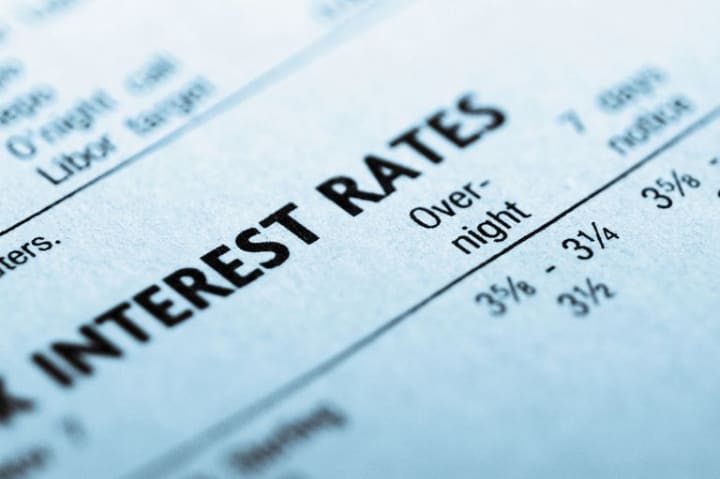Should You Invest or Pay Off Debt?
If you have some money, it's common enough to ask whether you should invest or pay off debt. Here's the scoop from someone who's been there.

Most people who have started to live on their own and be a responsible adult have had this issue in the past: they get money, and they don't know what to do with it. Those who are impulse spenders will often run to Amazon and splurge on something they've been eyeing for a while.
The rest of us, the ones that want to have some good standing in their personal finances, tend to want to do something to better their futures. This usually means investing your money, or paying down debt you've accrued.
If you're wondering whether you should invest or pay off debt, you're not alone. Here's the scoop behind what financial experts would tell you to do...
Before we begin, it's crucial to talk about your financial standing first.
Let's be honest here—your financial situation will have a huge impact on how much choosing to invest or pay off debt will have on your life. Different situations will have different answers.
If you are 50 years old and up to your eyeballs in debt, it doesn't make sense to sock away $100 in an investment account that will likely provide $97 in 10 years or so. That money could pay down debt and make next month easier.
On the other hand, a 20-year-old who has only $9,000 in debt will probably be able to pay that off eventually, but the compound interest from a mutual fund would be way more likely to grow to be a better investment over time.
So, take all this advice with a grain of salt. Your personal situation will be different from others', so use your own common sense to figure out what to do.
We also need to talk about investing before we begin, too.
Paying off debt means that you will avoid more compound interest, which will make it easier for you to make things happen later on in life. Compounding interest is fairly easy to understand, so we're going to assume that you understand it. It's basic math.
Investments, on the other hand, aren't so easy to figure out. Investing can have a variety of different rates that make it different from others. Some investments won't pay off at all; they're risky like that. Others can actually exceed the amount of interest you're paying on loans.
A variety of factors can come into play. For the sake of this article, we're going to assume that you are going to have an investment that improves at 7 percent per year—the average performance in the stock market.
Some investments, like choosing to buy Bitcoin, are super volatile. Don't do them unless you're okay with losing everything.
The easiest way to determine whether you need to invest or pay off debt is to look at the interest rates.

Debt is a pretty insidious thing, primarily because you're taking money you don't own—and have to pay it all back. The interest compounds relatively quickly, especially when you're talking about credit card debt.
Credit card debt, on average, has a 22 percent annual interest. That builds up quickly and is literally the way that banks take money out of your pocket. This means that the $100 you spent on credit will turn into $122 by the end of the year, if you don't pay it down.
If your interest rate from debt is higher than the interest rate of the investment, you probably should pay off the debt. There's no question of that; even if it's a smaller debt, the gain you'd get from investing would be outpaced.
If they're equal, ask yourself how long the debt would need to be paid off. If the debt is fixed, like a car payment, you might want to invest that $100 into a long term investment that outlasts the car payments. If it's rotating debt, like credit cards, you're fine to invest or pay off debt as you see fit.
If the debt's rate is less than the investment's rate, buy the investment.
Of course, looking at your debt-to-income ratio can help, too.
A good measure of how badly you need to pay off debt can be found in your debt-to-income ratio. Do you owe as much as you earn? Experts say that a debt-to-income ratio (the amount you spend on debt compared to the amount you earn per month) shouldn't exceed 25 percent.
If you're spending more than a quarter of your monthly pre-tax income on debts, you probably are feeling a bit of a squeeze. Your best bet would be to forget worrying about whether to invest or pay off debt. Debt reduction should be your number one priority at that point.
If you're just dealing with a mortgage, chances are you don't need to pay off debt.
Believe it or not, your mortgage isn't necessarily "bad debt." Rather, it can actually be seen as a way to keep your credit score boosted and also helps you manage work with creditors in the future. If you are, for the most part, debt-free, then you don't have to consider wiping out your mortgage quite yet.
In this debate of whether to invest or pay off debt, chances are that you would be much better off investing. At this point, you've got your life managed well—and a good investment or two would really just be the icing on the cake.
If you're young or in your early 20s, then you really should try to invest.
Investing when you're young will often allow you to make more money thanks to time. As time passes, the maximum amount of money a person can make via investments starts to shrink. So, if you're a budding Warren Buffett, do what you can to invest when you're young.
That being said, if you're worried about debt, avoiding it is usually the best medicine for your financial health.
Of course, you could always do both.

I'm going to point out that it doesn't have to be a debate between choosing to EITHER to invest OR pay off debt. Some people might find themselves better suited to doing both. No one is barring you from using half your funds for debt reduction while opening up an account with other money.
If you are really not sure whether to invest or take down debt, do both. No one is stopping you. Even if this means splitting $200, there are still plenty of ways to invest $100 wisely.
That being said, paying off debt is a more "sure thing."
When you pay off debt, you have a guaranteed return on doing so. Less debt means less interest to pay, which in turn, means that your monthly bills will be lower. This, in turn, tends to mean way less panicking and stress on most people.
Investments can go either way. They may involve total losses, or they may end up blossoming. If you're looking for a surefire way to better yourself, paying down debt is a good option.
The best way to figure out what to do with the money, regardless of your situation, is to do the math.
Math is what ends up being the big decider for major investment firms, and if you want to start investing like a pro, you should take a cue from them. Crunch some numbers to figure out which investment is the best way to make sure you get the most of your money.
More often than not, if you sit down and do the math about how much you'd be saving versus spending, you'll find the answer is pretty obvious. This is true regardless of your situation.
No matter what you choose, it'll be better than buying a pair of shoes.
I'm all for indulging once in a while, but let's be real. Whether you invest or pay off debt with your extra cash, and you'll be able to enjoy a way nicer lifestyle down the road. On the other hand, if you splurge now, you're going to be a rich-looking pauper.
That's just the way the world goes.
About the Creator
Cato Conroy
Cato Conroy is a Manhattan-based writer who yearns for a better world. He loves to write about politics, news reports, and interesting innovations that will impact the way we live.






Comments
There are no comments for this story
Be the first to respond and start the conversation.